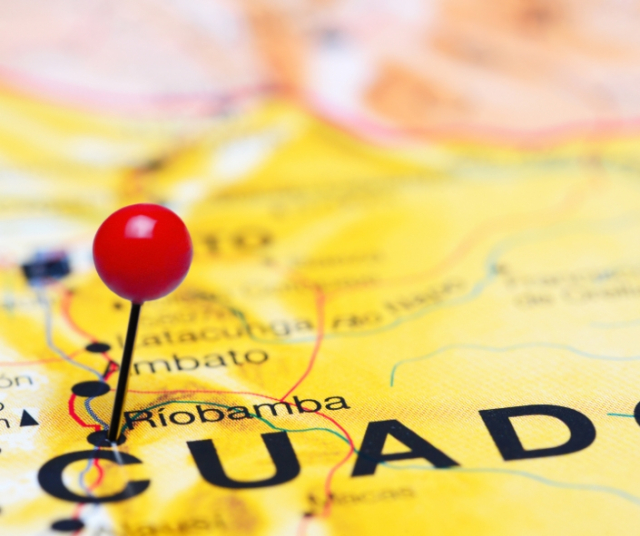Riobamba, a city located in the heart of the Ecuadorian Andes, is a place with a rich history and significant cultural importance. From its founding to the present, Riobamba has witnessed numerous historical events and has played a fundamental role in the development of Ecuador. In this article, we will explore in detail the day of the founding of Riobamba, as well as its historical context, its evolution over the centuries and its impact on Ecuadorian society.
The Riobamba Foundation:
The founding of Riobamba dates back to the period of Spanish colonization in Latin America. The city was established on August 15, 1534 by Diego de Almagro, a prominent Spanish conquistador who was part of the expedition led by Francisco Pizarro. Riobamba was one of the first cities founded by the Spanish in what is now Ecuador, and its strategic location in the Andes made it an important colonial center.
The name "Riobamba" comes from the Quechua language and means "plain next to the river." The city was built on the slopes of the Chimborazo volcano and became an important administrative and commercial center during the colonial era. Riobamba was established as a crucial starting point for Spanish expeditions into the Andean interior and played a key role in the expansion of the colonial empire in the region.
Historic context:
During the colonial period in Latin America, Riobamba became an important administrative and commercial center in the Ecuadorian Andes region. The city was founded at a time of intense colonial activity, with the Spanish establishing colonies and cities across the continent in search of wealth and power. Riobamba, with its strategic location on the slopes of the Chimborazo volcano, quickly became a crucial starting point for Spanish expeditions into the interior of the Andes.
One of the most significant aspects of the historical context of Riobamba during the colonial era was its role as a center of agricultural and mining production. The region surrounding Riobamba was known for its fertility and abundance of natural resources, making it an ideal location for agriculture and mining. Spanish settlers established large haciendas and mines around Riobamba, using indigenous labor to work the land and extract precious minerals such as gold and silver.
In addition to its economic importance, Riobamba also became an important cultural and religious center during the colonial era. The Spanish built churches, convents and plazas in the city, leaving an architectural legacy that endures to this day. The Church of San Antonio and the Cathedral of Riobamba are outstanding examples of colonial architecture in Ecuador, with their impressive facades and elaborate decorations that reflect the wealth and power of the Catholic Church in the region.
However, the historical context of Riobamba during the colonial era was also marked by conflicts and tensions between the Spanish settlers and the native indigenous population. The indigenous people of the region resisted Spanish colonization, fighting to maintain their lands and autonomy in the face of colonial expansion. These conflicts gave rise to numerous indigenous rebellions and revolts, which were brutally repressed by the colonial authorities.
Evolution over the Centuries:
Over the centuries, Riobamba has experienced numerous political, social and economic changes that have shaped its identity and urban landscape. After Ecuador's independence in 1830, the city became a center of political and cultural activity in the country. Riobamba witnessed important historical events, including the Liberal Revolution of 1895, which had a significant impact on Ecuadorian politics.
In the 20th century, Riobamba continued to grow and develop as an important urban center in the Ecuadorian Andes. The city became an important transport and trade node in the region, with the construction of roads and railways connecting it to other important cities in Ecuador. Additionally, Riobamba was established as an educational and cultural center, with the founding of academic institutions and the promotion of arts and culture.
Historical and Cultural Importance:
Riobamba's historical and cultural importance is reflected in its well-preserved colonial architecture, deep-rooted cultural traditions, and vibrant arts scene. The city is known for its beautiful colonial churches, such as the Riobamba Cathedral and the Church of San Antonio, which are outstanding examples of colonial architecture in Ecuador.
Additionally, Riobamba is famous for its annual Diablada de Píllaro festival, a colorful celebration that combines indigenous and Spanish traditions. During the festival, participants dress up as devils and perform dances and parades through the streets of the city, in a tribute to the culture and history of Riobamba.
The founding of Riobamba on August 15, 1534 marked the beginning of a rich and diverse history that has left an indelible mark on Ecuadorian society. From its role as a colonial center at the time of the Spanish conquest to its evolution as a major urban center in modern Ecuador, Riobamba has played a crucial role in the country's history and culture.
Over the centuries, Riobamba has witnessed numerous changes and transformations, but its resilient spirit and cultural heritage endure to this day. The city continues to be an important center of political, economic and cultural activity in the Ecuadorian Andes, and its architectural beauty and cultural traditions make it a fascinating destination for visitors interested in the history and culture of Ecuador.
